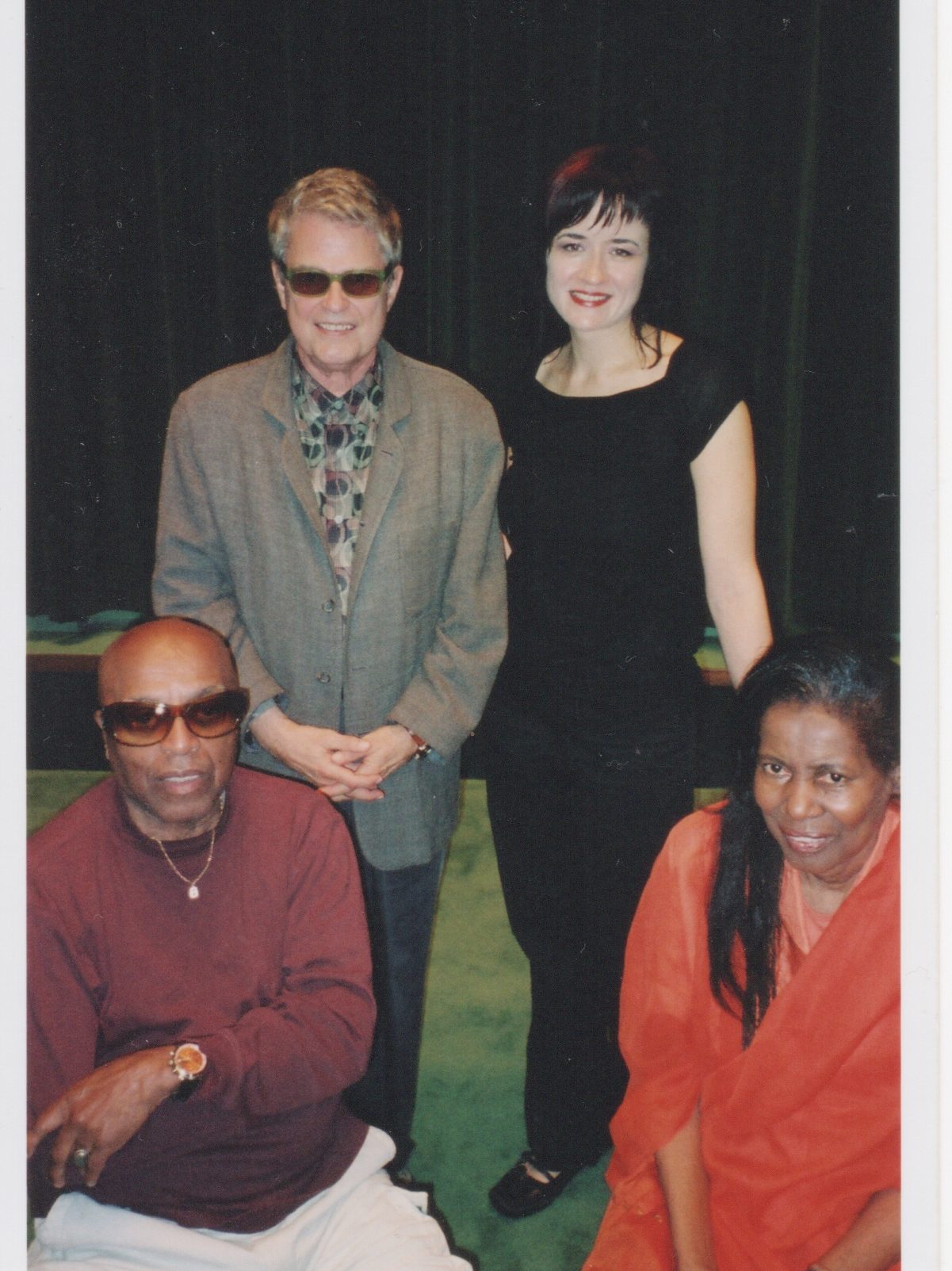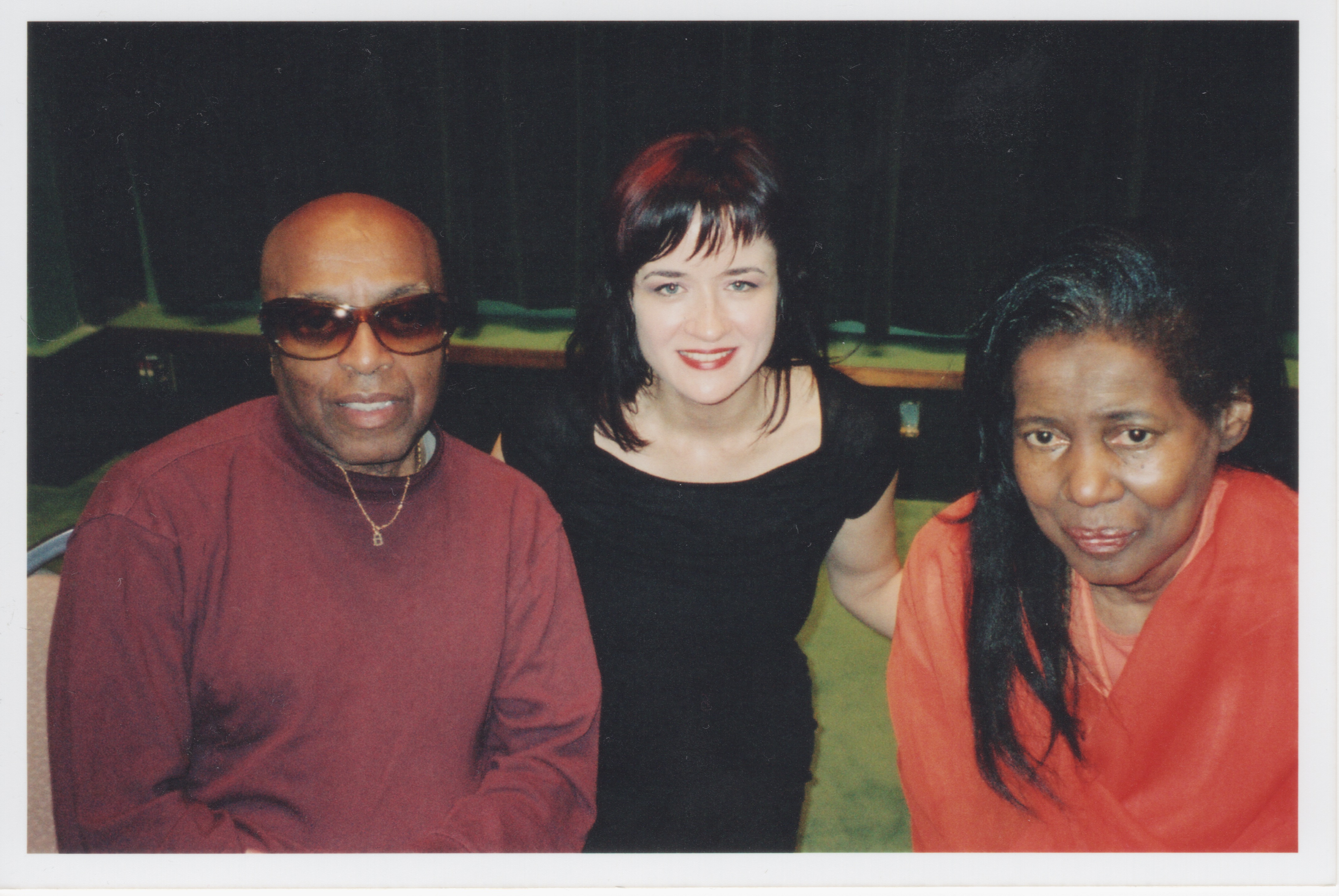About 15 years ago, something amazing happened. Alice Coltrane, who has produced some of the world’s most revered cosmic/spiritual/jazz recordings, was returning to Detroit for a live performance. It had been decades since her last visit for a performance, and there was excitement in the air. I was asked to interview Alice on stage for a special event prior to her performance.
I’ve interviewed a few artists in my time, but when I was asked by the University Musical Society to interview Alice, I almost couldn’t believe it. It was only later I would find out that fellow legends Roy Haynes and Charlie Haden would be interviewed as well. Wow! I’ll admit to feeling at least somewhat intimidated, but I couldn’t pass up this opportunity to be a conduit for these musicians to share their thoughts with the world.
When the day came, it felt like a blur. We talked about so many things. John Coltrane was at the forefront, marking the 40th(ish) anniversary of A Love Supreme, which is an occasion Alice Coltrane was keen to highlight. She wanted to talk about the message of love and spirituality, two topics that had become especially important to her over the years.
Each musician took turns commemorating John, but Roy and Alice also talked about attending church during their childhoods. Alice shared about growing up in Detroit and where she attended high school (spoiler alert: it wasn’t Cass Tech), how her final record finally came together, and how personal expressions become very public expressions.
We talked about jazz as a political art form, while Charlie delved into the state of the world throughout his lifetime (which seems sadly familiar still today), and how he responded with music. Having such giants in the room, I couldn’t resist asking about the future of jazz. Roy has supported several young players, and Charlie taught many up-and-coming musicians at CalArts — Ravi Coltrane was one of his students. (Ravi was also scheduled to be interviewed, but couldn’t attend due to a flight delay.)
It was Alice’s very matter-of-fact response to the question about the future of jazz that summarized, for me, the value of her many contributions. “People will inherit it and the young people are playing it.” In other words, it doesn’t matter what any of us think; what does matter is what has happened and what the next generation is simply doing.
What also matters is the mark that all three musicians have left on music and music-makers. Alice’s star continues to rise beyond her time here on earth, with fresh recognition being given to the work that she’s done on a regular basis.
Alice scheduled dates in the proximity of only three cities on what became her final tour, and she had a personal connection to each of them. The west coast, where she lived and founded an ashram; Michigan, where she grew up and built her foundation; and the east coast, where she lived with John and her family before relocating to Southern California after his passing.
That Alice decided to share her thoughts and ideas with a Detroit (technically Ann Arbor, but close!) audience, after so many years of shying away from interviews, was an incredible moment. I have a story about how this interview almost didn’t see the light of day, but I’ll save that for another time. For now, I’m so glad to be able to share it with you here in this Impulse 60! Collector’s Zine. It’s not available online. It’s available only in print in a limited run.

From left to right: Roy Haynes, Charlie Haden, me and Alice Coltrane.
Top image: Me with Roy Haynes and Alice Coltrane, 2006.
